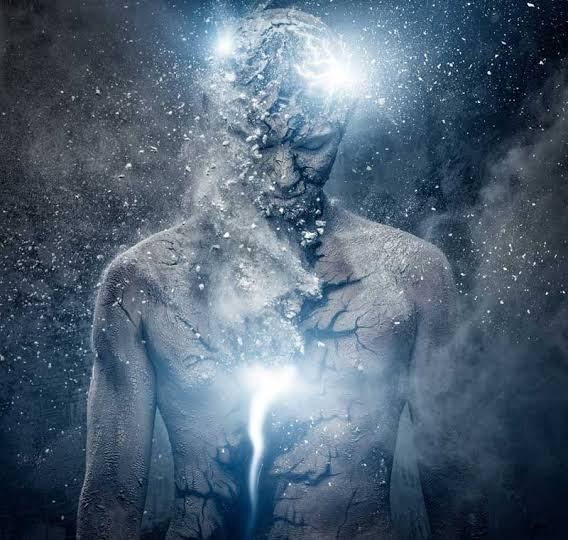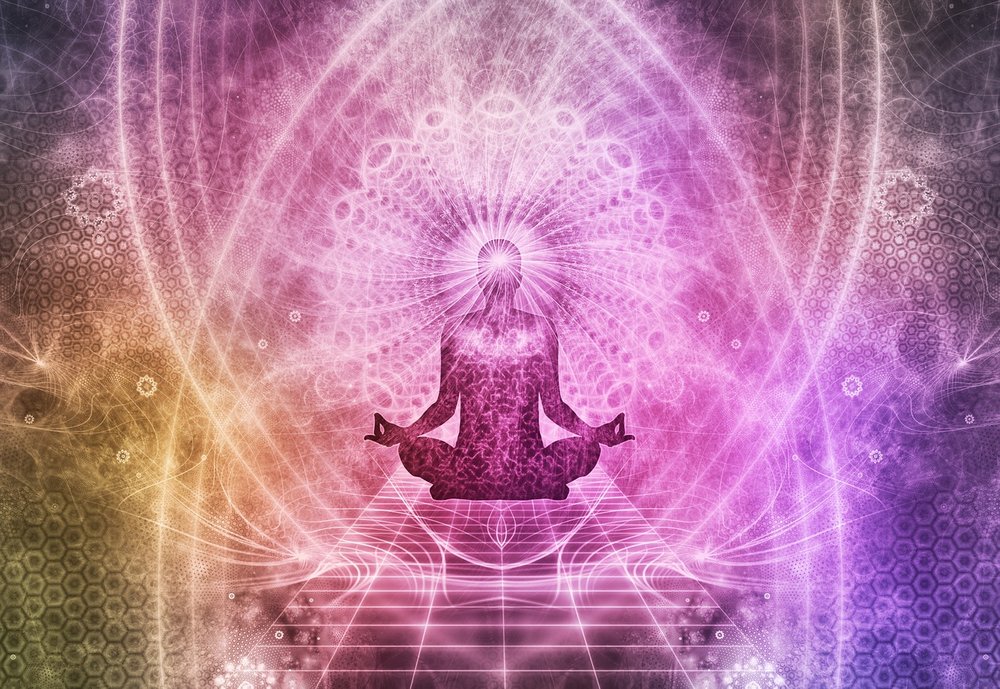It’s a clear and mild spring afternoon. Sitting beside the stream and delighting in the smells, sights and sounds of early spring, the senses attune to the present, and become primary. As the clear, rippling creek flows by at my feet, passive watchfulness sweeps extraneous thoughts and emotions downstream.
The observer is an infinite regression of thought. Passively watching the movement of the mind as a whole, the brain gathers attention, and thought ceases splitting off from itself as the observer. Then there is simply observing. Meditation begins when the observer effortlessly ends.
The senses are the gateway to direct perception—seeing beyond words, memories and knowledge. As meditation deepens, the entire psychological movement of thought falls silent.

Thought has to cease being the psychological ground of our being. Thought is a functional instrument, giving us the ability to communicate, and to build and drive cars, functions that are being taken over by machines also being designed and built by thought.
So what is the relationship between the senses and meditation, and between the senses and knowledge? For meditation to occur, one has to set aside all knowledge, including and especially the knowledge of how to meditate. Truly, one ‘reinvents the wheel’ of meditation each time.
Acute, integrated senses are the gateway to meditation. Reason and knowledge have to be held in abeyance, and the observer and thinker have to leave off. Not through effort of any kind, but simply by watching and attending— experimentally, playfully and joyfully in the mirror of nature.
The intactness and diversity of life on Earth is not a value that man imbues; they are prerequisites for human wholeness and spiritual growth. If we continue to destroy the Earth, we will become permanently lost as a species.
Allowing the senses to be primary and present, simply attending to what is happening around and within one without interference, the mind-as-thought falls silent. When the mind falls silent, the interpretation of reality (the man-made world) and actuality (nature and the intelligence within nature) ends. There is what’s been derisively called ‘immaculate perception.’
When thought is still, many insights come, which, metaphysically and metaphorically speaking, are whisperings from the mind of God. Complete stillness in attention (the core intent of meditation) yields a state of insight, which is communion with the mind of God.
I’m not referring to a deity that stands apart, but to immanence, to the intelligence within nature, and beyond knowledge and expression.
Both the East and the West have denied and suppressed the senses, seeing them as base and destructive to religious and spiritual experiencing. That has been a great philosophical and existential mistake.
The West added another layer of separation, by viewing the senses as secondary to reason and knowledge. “The senses can think nothing,” Kant famously said.
More than any other modern philosopher, the prodigious intellect of Immanuel Kant (1724-1804) has stamped the Western mind. The basic assumptions we have about the senses and perception can largely be traced to Kant. And they’re mistaken.

As a present-day philosopher put it, Kant maintained that “sense perception can never transcend the bounds of experience to reach reality; it is a permanent obstacle which prevents us forever from knowing a reality directly.”
That’s simply false. Meditation by whatever name (without respect to systems and methods) begins when the senses open and release the mind, even temporarily, from the chains of experience and knowledge.
Knowledge and experience, when they are put first, are bondage. So what allows direct perception of what Kant called noumena, the transcendental, without the screen of knowledge, experience and symbol?
It’s true, as Kant pointed out, that the transcendental realm, including things such as God, freedom and immortality, cannot be legitimate forms of knowledge. Not because they cannot be sensed but can only be accepted on faith however.
The problem is epistemological, which is to say that we value the accumulation of knowledge over our capacity for experiencing things that lie beyond the reach and sphere of knowledge.
Therefore it’s simply incorrect to say, as nearly all philosophers do: “Human senses cannot penetrate metaphysical reality, but are restricted to sensory phenomena.” That idea enshrines, even idolizes thought and knowledge.
Human senses are the only thing that can penetrate metaphysical reality. That’s because when they are allowed to be highly sensitive and fully integrated, the senses allow the brain to gather attention, which quiets the mind-as-thought.
When the mind-as-thought folds its wings and ceases to give flight to verbalization and association, one’s consciousness is no longer imprisoned by words and memories, knowledge and experience. Such a mind, even for just a few timeless moments, has direct perception and insight.
Martin LeFevre

